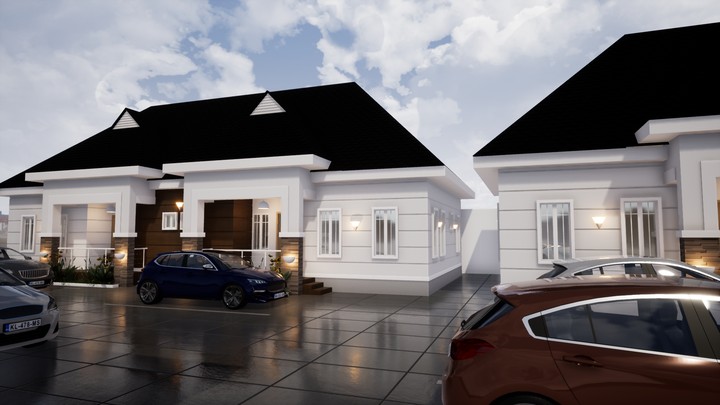
Stakeholders query FG’s costly housing prices nationwide
Amid growing public concern over housing prices introduced by the Federal Government under the National Housing Programme (NHP), private developers have picked holes in the scheme.
They argued that the programme is not affordable, justifiable as it is beyond the low-income earners and may breed corruption among civil servants. They said the government should concentrate on making policy than engaging in housing construction.
There were also insinuations that prices may undermine the genuine intentions of private developers and may give rise to an increase in housing prices, as some developers are selling one-bedroom flats between N1.5 million and N4.5 million in Abuja and major cities.
The Minister of Works and Housing, Babatunde Fashola had unveiled a portal for the housing scheme recently and urged Nigerians to apply for allocation of available 5,000 plus housing units, ranging from one, two to three-bedroom bungalows and blocks of flats in any location of their choice across 34 states and the Federal Capital Territory.
Essentially, the buildings come with variations in prices as a result of the cost of building and topography. The one-bedroom house type costs between N7, 222,404 and N9, 268,751. A two-bedroom bungalow sells for N9, 148,378 and N12, 398,460, while that of a three-bedroom range between N13,241,074 and 16,491,155.
Specifically, the Chairman, Board of Trustees, Real Estate Developers Association of Nigeria (REDAN), Oluseyi Lufadeju, told The Guardian that the pricing is not reasonable and justifiable. “If you want to build for the low-income, it’s not workable. It is not the type of houses the low and medium-income earners are looking for,” he said.
Lufadeju continued, “they’re looking for houses between N2.5 million and N3 million. That’s why people are saying, the government has no business to build houses. It is the responsibility of private developers. Government should provide land and infrastructure as in all housing developments; infrastructure is 30 per cent of the cost of construction.”
He said the government should continue to provide enabling environment in terms of low-cost financing and use of local building materials as well as facilitate the private sector because they rely on research and their research efforts have been bringing solutions.
For the Professor of Estate Management, University of Lagos, Timothy Nubi, the houses are not affordable. He said that he is not surprised by the turn of events, as the government believes that there cannot be affordable homes if the prices of cement and iron rods are high.
Nubi, who is also a member of REDAN, urged the Muhammadu Buhari administration to study the blueprint of the late Lateef Jakande that enabled him to provide low-income houses in the country.
He lamented that what is supposed to be for low-income earners are now out of their reach. “It is better for the government not to go into housing and come up with such ridiculous prices,” he said.
Nubi said that it is the wealthy that will buy up the houses as no civil servant or lecturer can afford such houses. He added: “They’re telling the civil servants to go and steal, which will fuel corruption in the society.”
The REDAN Vice President, and Chairman, South-West zone, Debo Adejana, said with the Federal Mortgage Bank of Nigeria (FMBN)’s National Housing Fund (NHF) loan scheme more middle-income earners in the formal sector should be able to secure these properties if they can find any that meets their needs.
“For the low-income earners, I am sorry to say that I cannot see how they will be able to afford any of the properties, except there is a highly subsidised or social housing component to the offering which I have not heard of.
On the impact of the prices on real estate, Adejana said: “Private developers do not need the government hosting prices to move their prices. Prices have already moved and keep moving based on the performance of building material prices. A situation where most construction inputs have more than doubled in price in the last year does not need government housing prices before private developers adjust their prices. It is simply market dynamics of demand and supply at play.”
Clarifying that the decision to adopt online sale of forms, Fashola said, “It is just to make the system more accountable and people seeing credibility if they win, and if they are not successful they will equally know that the system has at least given them a fair chance.”
He explained that the government did not just set out to build houses, adding that the project has served many purposes, the first of which was to test what sort of houses Nigerians would like to live in so as to make policies to guide its agencies and parastatals, as well as other stakeholders, to build what could be acceptable in the markets.
“We are the policy head of those parastatals like the Federal Housing Authority (FHA), the Federal Mortgage Bank of Nigeria (FMBN) and so on. We are saying that the NHP had not succeeded in the past and some of the houses built then still remain empty. So, we conducted a national survey across the zones just to find out what is acceptable,” the Minister said.
The findings, he said, were that while in the Northern part of the country there was a preference for bungalows and a large expanse of land which encouraged building horizontally, in the Southern part, there seemed to be acceptable for blocks of flats and lack of space which made building vertically necessary.
According to the minister, the scheme is a pilot or demonstration scheme meant, among others, to galvanise private sector participation. Fashola explained further, “We applied for land from the states and we set out to do a demonstration or a pilot programme because we then wanted to validate what we saw and build a pilot scheme.”
He added, “It was also a way to implement our Economic Recovery and Growth Plan (ERGP) because as at the time we conceived this programme, the country was in recession”, expressing delight that it has fulfilled that objective because over 1,000 contractors were engaged on the building sites; “businesses owned by Nigerians and Nigerian contractors.”
Source:Guardian
Similar Topics
The Lagos State Government has commenced the demolition of illegal structures within the Lekki Free...
a month ago Read MoreNigeria’s recently enacted Tax Act of 2025 (NTA 2025), which becomes effective on January 1,...
a month ago Read MoreMember States of the United Nations Human Settlements Programme (UN-Habitat) have endorsed a new...
2 months ago Read MoreNigeria Enters a New Tax Era Come January 2026, Nigeria’s property market will experience a...
2 months ago Read MoreImproved Security and Diaspora Capital Drive Rebound The housing sector in Nigeria’s...
2 months ago Read MoreThe Lagos State Government has announced that night-time repair works will take place on Ozumba...
4 months ago Read MoreThe Federal Government has suspended all previously approved, pending, and prospective applications...
5 months ago Read MoreThe Federal Government has successfully mobilised more than N70 billion in private capital...
5 months ago Read MoreThe Lagos State Government, through the Lagos State Physical Planning Permit Authority (LASPPPA),...
7 months ago Read MoreThe Federal Government has expanded the Abuja-Kaduna-Kano Road project to incorporate a direct...
7 months ago Read MoreThe Federal Capital Territory Administration (FCTA) has taken possession of Wadata Plaza, the...
8 months ago Read MoreDefaulters on FCT ground rent now have 14 days grace to pay up what they owe the FCT Administration...
8 months ago Read MoreUnprofessional practices by estate agents in major cities are significantly influencing the spike...
8 months ago Read MoreA Real estate development firm, Lifecard International Investment Company, has revealed that many...
8 months ago Read MoreDespite a fall in investment volumes from the 2021 peak, there is an ongoing desire for property...
8 months ago Read MoreThe Lagos State government has advised the leadership of the Nigerian Institution of Estate...
8 months ago Read MoreReal estate market dynamics such as construction cost, land, finance, government policies and taxes...
8 months ago Read MoreEvent Set to Celebrate Managers Who Shape Careers and Drive Organizational Growth Business...
10 months ago Read MoreGlobal Leaders to Converge in Lagos for Landmark Event Driving Urban Innovation and...
10 months ago Read MoreIn a bold move to redefine affordable luxury housing, Nigerian real estate giant Gtext Holdings has...
10 months ago Read More
















